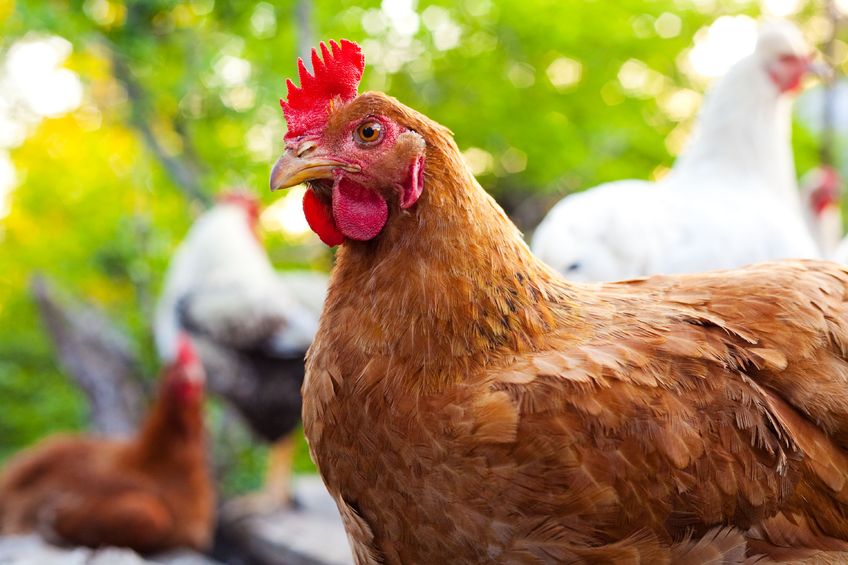H5N1 bird flu confirmed in poultry in north Wales

A case of H5N1 avian influenza has been confirmed in poultry and wild birds in north Wales, just days after the UK recorded its first bird flu outbreak of the season.
The Chief Veterinary Officer for Wales confirmed the presence of the H5N1 strain at a premises in Wrexham county on Monday evening (1 November).
Temporary Disease Control zones of 3km and 10km have been imposed around the premises to limit the risk of disease spread.
A veterinary investigation is underway, however, dead wild birds found in the area have tested positive for the virus and are believed to be the source of infection.
The Welsh government said the risk to public health from the virus was considered to be very low.
This is the first confirmation of the disease in Wales since it was discovered in pheasants at a premises on Anglesey in January.
It follows the announcement of similar discovery of avian influenza at a wild bird rescue centre in Worcestershire on 26 October.
Last week, the government raised the official risk level for highly pathogenic bird flu following the spread of the virus amongst wild birds on the migration route to the UK.
The Chief Veterinary Officer for Wales, Christianne Glossop said: “Avian Influenza has been found in poultry and wild birds in the Wrexham area.
"This is further evidence of the need for all keepers of poultry and captive birds to ensure they have the very highest levels of biosecurity in place.
“Temporary control zones have been imposed to help prevent further spread of the disease.
“Suspicion of avian influenza or any other notifiable disease must be reported to the Animal and Plant Health Agency immediately.”
How can I protect my flock?
The government is reminding poultry farmers and backyard keepers of simple measures they should take to protect their birds against the threat of avian flu.
These apply to people running a large commercial farm, keeping a few hens in their back garden and those rearing game birds.
• Keep the area where birds live clean and tidy, control rats and mice and regularly clean and disinfect any hard surfaces
• Keep chickens and turkeys completely separate from ducks and geese
• Conduct regular maintenance checks on their sheds
• Clean moss off the roofs, empty gutters and remove vegetation between sheds where birds are kept
• Draw up contingency plans for storing bedding and dealing with pests
• Place birds’ feed and water in fully enclosed areas that are protected from wild birds, and remove any spilled feed regularly
• Put fencing around outdoor areas where birds are allowed and limit their access to ponds or areas visited by wild waterfowl
• Clean and disinfect footwear before and after entering premises where birds are kept
Members of the public are also encouraged to not pick up or touch any sick or dead birds and instead contact the Defra helpline on 03459 33 55 77.








